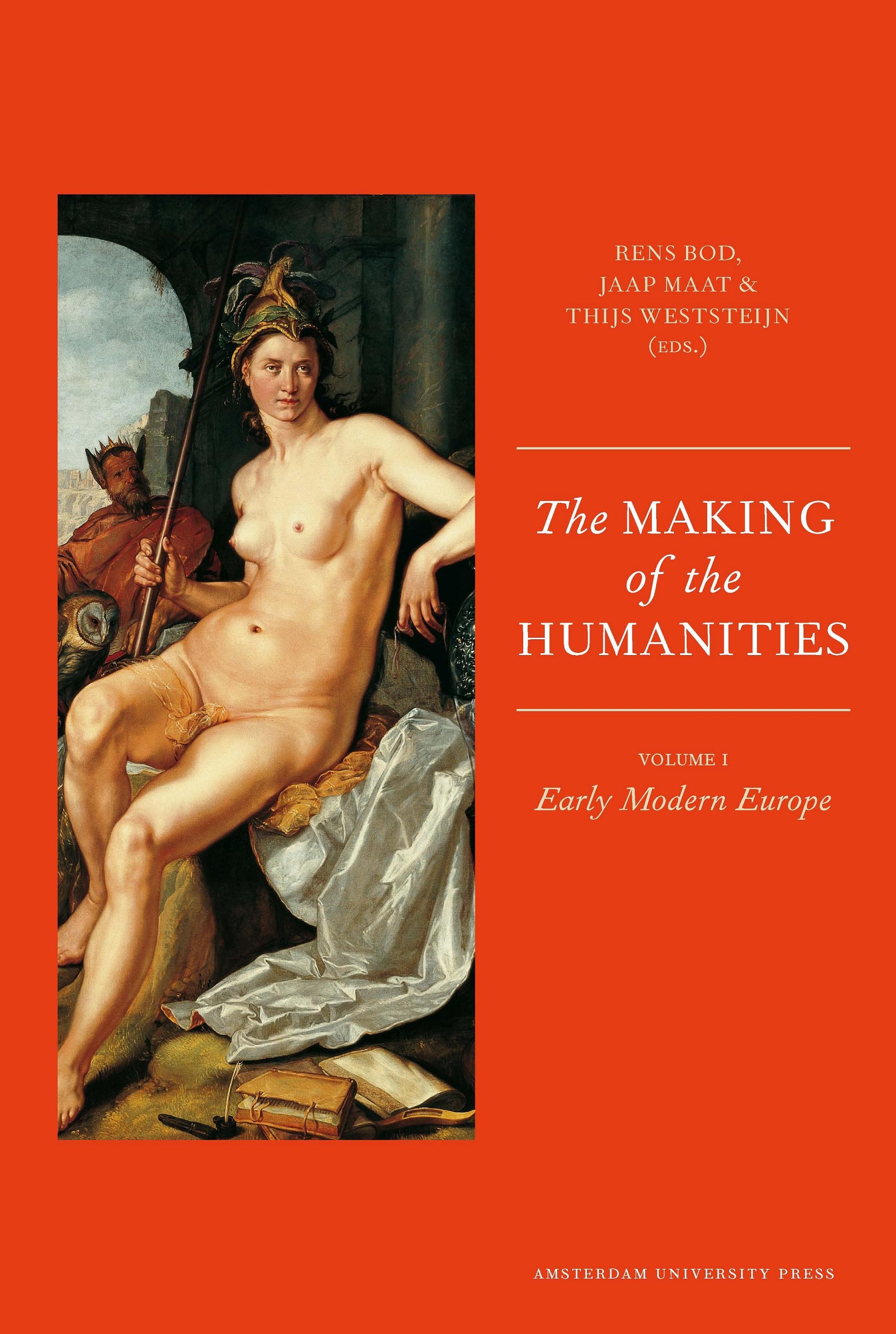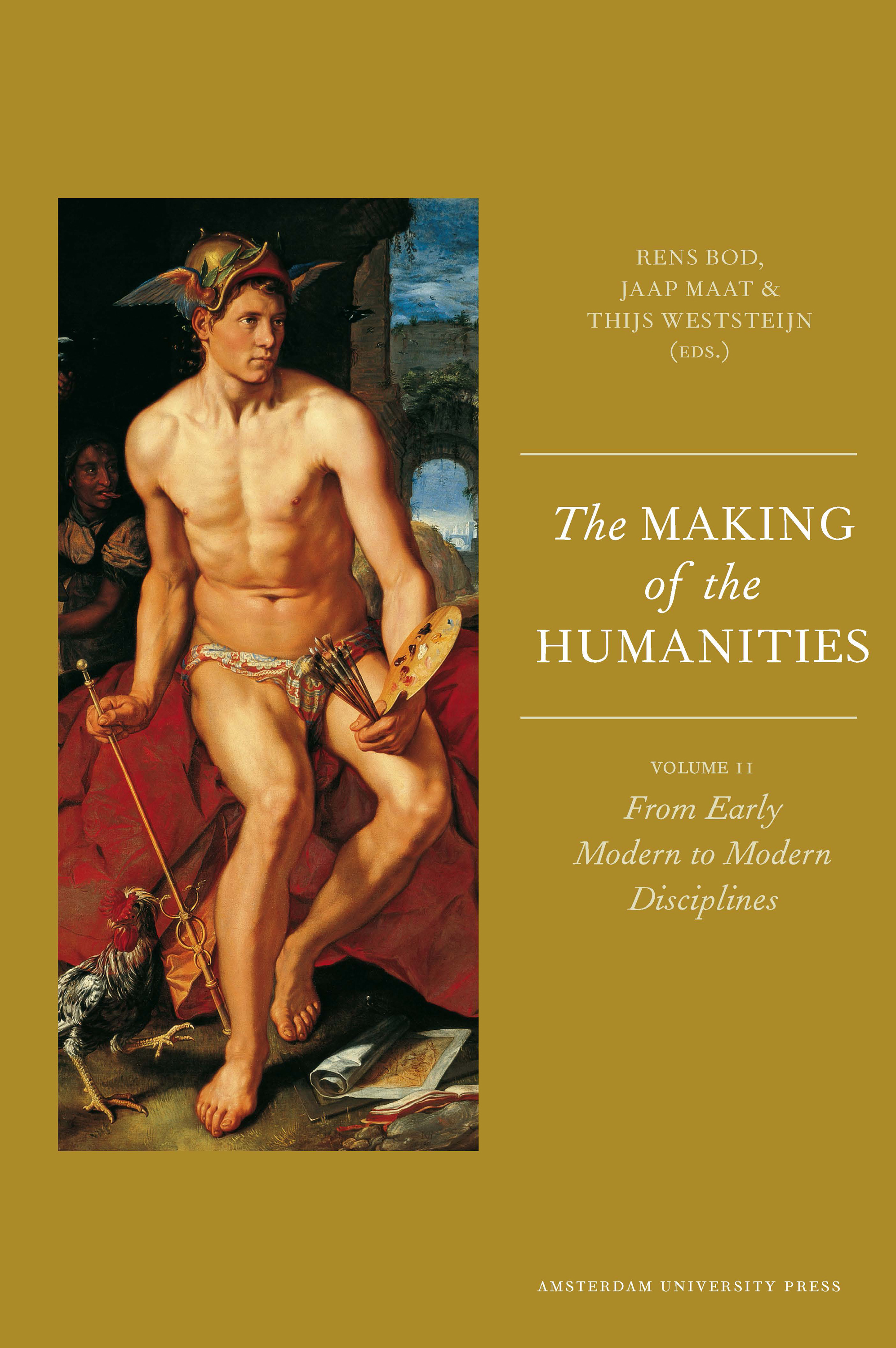Rens Bod, Jaap Maat, Thijs Weststeijn (eds.): The Making of the Humanities, Vols. 1–2 (2010–12)
Filed under book | Tags: · art, art history, historiography, history, history of philosophy, history of science, humanities, language, linguistics, literary theory, logic, musicology, philology, philosophy


“The Making of the Humanities is the first step towards the development of a comparative history of the humanities. Specialists in philology, musicology, art history, linguistics, literary theory, and other disciplines highlight the intertwining of the various fields and their impact on the sciences.
The first volume in the series focuses on the early modern period. Different perspectives reveal how the humanities developed from the ‘liberal arts’, via the curriculum of humanistic schools, to modern disciplines. The authors show in particular how discoveries in the humanities contributed to a secular world view, pointing up connections with the scientific revolution. The main themes are: the humanities versus the sciences; the visual arts as liberal arts; humanism and heresy; language and poetics; linguists and logicians; philology and philosophy; the history of history. Contributions come from a selection of internationally renowned European and American scholars, including Floris Cohen, David Cram, and Ingrid Rowland. The book offers a wealth of insights for specialists, students, and those interested in the humanities in a broad sense.
The second volume investigates the changes in subject, method and institutional context of the humanistic disciplines around 1800, offering a wealth of insights for specialists and students alike. Point of departure is the pivotal question whether there was a paradigm shift in the humanities around 1800 or whether these changes were part of a much longer process. The authors provide an overarching perspective including philology, musicology, art history, linguistics, historiography, philosophy and literary theory. They also make clear that the influence from the East, from the Ottoman Empire to China, was crucial for the development of the European humanistic disciplines.”
Publisher Amsterdam University Press, Amsterdam
Open Access
ISBN 9789089642691 & 9789089644558
400 & 432 pages
Reviews: Sandrine Maufroy (H-Net, 2011, of Vol 1), Anja-Silva Goeing (Renaissance Quarterly, 2012, of Vol 1), Charles G. Nauert (Intellectual History Review, 2012, of Vol 1)
Conference: 2008, 2010.
Publisher: Vol. I, Vol. II.
OAPEN: Vol. I, Vol. II.
Volume I – Early Modern Europe (updated on 2022-12-20)
Volume II – From Early Modern to Modern Disciplines (updated on 2022-12-20)
Volume III
K. G. Beauchamp: Exhibiting Electricity (1997)
Filed under book | Tags: · 1800s, 1900s, electricity, engineering, exhibition, history of science, history of technology, machine, science, technology, telegraphy

“This unusual book traces the history of public and technical exhibitions, from their origins in the late 18th century to present day, and, particularly, how they have reflected the progress of science and technology (especially electrical technology). Not only does the author show how electrical innovation and manufacture have been presented to the wider public through this period, but he also shows how the exhibitions themselves have required technological advice. It is through this combination of roles that the importance of these exhibitions within scientific and technological advance can be understood.”
Publisher Institution of Electrical Engineers, 1997
IEEE History of Technology Series, Volume 21
ISBN 0852968957, 9780852968956
352 pages
review (Bernard S. Finn, Technology and Culture)
review (Iwan Rhys Morus, The British Journal for the History of Science)
Reviel Netz: The Shaping of Deduction in Greek Mathematics: A Study in Cognitive History (1999)
Filed under book | Tags: · geometry, history of mathematics, history of science, mathematics, science

“The aim of this book is to explain the shape of Greek mathematical thinking. It can be read on three levels: first as a description of the practices of Greek mathematics; second as a theory of the emergence of the deductive method; and third as a case-study for a general view on the history of science. The starting point for the enquiry is geometry and the lettered diagram. Reviel Netz exploits the mathematicians’ practices in the construction and lettering of their diagrams, and the continuing interaction between text and diagram in their proofs, to illuminate the underlying cognitive processes. A close examination of the mathematical use of language follows, especially mathematicans’ use of repeated formulae. Two crucial chapters set out to show how mathematical proofs are structured and explain why Greek mathematical practice manages to be so satisfactory. A final chapter looks into the broader historical setting of Greek mathematical practice.”
“This is, without contest, the most important book of science studies to appear since Shapin and Schaffer’s Leviathan and the Air-Pump.” (Bruno Latour in his review for Social Studies of Science)
Publisher Cambridge University Press, 1999
Volume 51 of Ideas in Context
ISBN 0521622794
327 pages
review (Nathan Sidoli, Educational Studies in Mathematics)
review (Jens Høyrup, Studia Logica)
review (Christian Marinus Taisbak, Mathematical Association of America)

